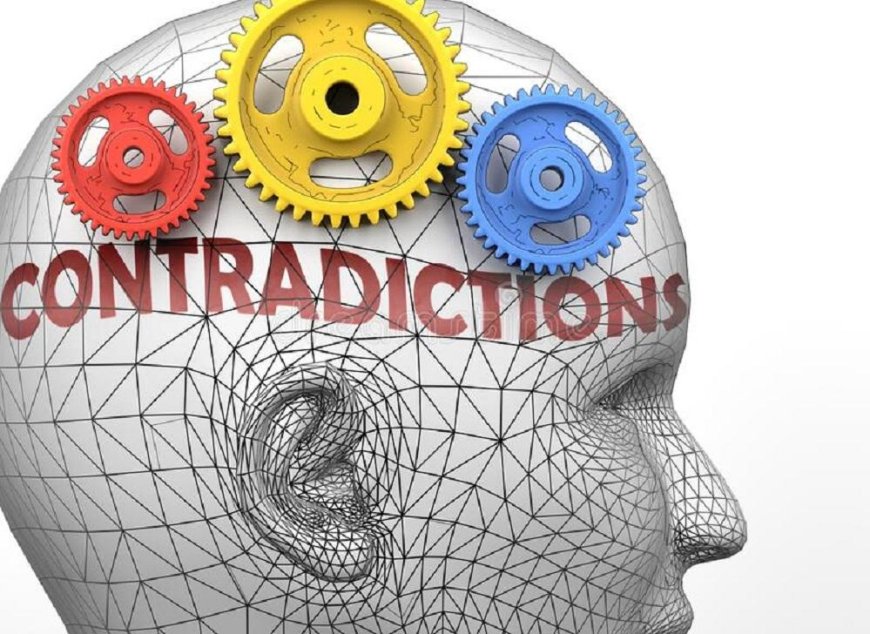Educational Contradictions - Learn the Three Great Antinomies
In this article, we will discuss the 3 Antinomies or 3 Contradictions of Education. Â This sentence illustrates how on many occasions society

In this article, we will discuss the 3 Antinomies or 3 Contradictions of Education. This sentence illustrates how on many occasions society holds a series of "great truths" that contradict each other. This phenomenon is called "antinomies", which are pairs of truths that, while appearing to be true, contradict each other.
Analyzing these helps us to greatly understand the principles governing the education system and its inconsistencies. It allows us to see the conflict between what we believe to be, what we would like and what it really is.
The three great contradictions in education are:
(a) Development education and education for culture,
(b) Intrapsychic learning and situational learning; and
(c) Local knowledge and social knowledge.
We will describe each of these antinomies in detail below.
Education for development and education for culture
The first of the contradictions in education revolves around its goals. If we ask about its goals, we will find many answers that indicate that it is about the personal development of the individual. That is, achieving the maximum potential of the individual, and at the same time achieving the global development of society.
On the other hand, another goal of the education system is to immerse or incorporate the individual into vernacular culture. School is not only based on teaching, it also teaches how to be and behave.
Well, while in principle it may appear that personal development and the transmission of culture are not conflicting goals, they actually contain irreconcilable aspects. The problem is that when it comes to reproducing culture, you don't just pass it on to itself.
Along with culture, various goals are also communicated, such as political or economic goals.
For example, capitalist and industrialized society is based on a very powerful labor force and a middle-class population. Consequently, it is normal for the education system to focus on training non-specialized and semi-specialized workers.
By conveying this type of culture, society remains stable. By contrast, education based on personal development would make culture unstable because it could lead to social change.
This contradiction exists because the population largely wants to grow and increase its intellectual potential. On the other hand, an established culture is still a kind of comfort zone because it gives us security and a sense of control.
Both culture and personal development bring us pleasure and satisfaction, but the antinomy consists in trying to achieve both. Consequently, pursuing both goals renders the educational system ineffective and full of errors. This leads us to ask ourselves what the real purpose of education really is.
Educational Contradictions: Child-Led Learning and Situational Learning
Another of the great contradictions in education concerns how children learn and how they are assessed. There is a strong tendency in the education system to classify children according to their performance (grades, classroom queries, comparisons¦).
This projects the idea that it is the child who benefits from the school's resources through his skills. However, unlike this approach, we also consider learning to be a situational process. Therefore, we believe that it will be easier for a child to use school resources if it is made easier by the environment.
In this case, the contradiction is more complex. It is a mistake to say that both the child and the environment are responsible for learning. Of course, both factors will affect his education, but throwing responsibility radically on one or the other will completely change educational policy.
If we rely on children's learning, it is logical to provide them with resources according to their requirements. These requirements will depend on their skills, but also on their motivation. In a way, they will be the directors of their own science.
On the other hand, when we deal with situational learning, the perspective will change and it is the educational context that will guide the learning process.
Must Read: Trends in the design of educational institutions
Meanwhile, our educational system takes action from both points of view, which results, as in the previous antinomy, in ineffectiveness and inconsistencies. Taking up one position or another can be largely dangerous, in part because of the political and economic contexts surrounding education.
Hence this contradiction. To find a balance point, we should be guided by what research and scientific studies suggest in this area.
Local knowledge and social knowledge
The last of the in education, at the same time, is perhaps the least clear-cut in the educational debate. This antinomy revolves around how to judge ways of thinking, ways of giving / receiving meaning, and ways of experiencing the world.
If we take a constructivist point of view, we would find relativism because reality is constructed by the interpreter.
On the one hand, we have the "great truth" that local knowledge is justified by its own laws. On the other hand, we are in favor of a global confluence regarding the interpretation of reality. The two statements are clearly opposite.
If we are looking for global knowledge, it would be an obstacle to maintain the local knowledge of small societies and groups.
A complicated debate arises here as each population or society has developed its local knowledge taking into account the context and time in which it exists, which in turn provides security and control.
On the other hand, worldwide knowledge gives us a framework for universal actions that can be very useful for us for the progress of global cooperation. Although it also entails serious dangers.
As with other antinomies, in-depth analysis and studies are needed to tell us what is the best solution to this contradiction.
